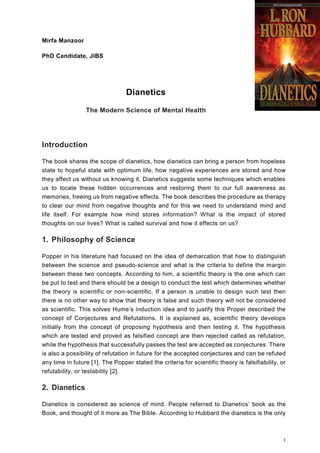All About Dianetics
All About Dianetics
Blog Article
The Facts About Dianetics Uncovered
Table of ContentsThe Only Guide for DianeticsSome Of DianeticsThe 2-Minute Rule for DianeticsThe 20-Second Trick For Dianetics
I couldn't ever before not desire to get anything that enters your mind for you- if it was or else, I wouldn't be sitting below with you, doing this. I not only could never ever have a trouble, or not intend to hear something that comes to mind for you, but I'm totally eager to understand every concept, every idea, every image or feeling that emerges or manifests for you- don't ever before think or else, and if somehow you do, please just let me recognize! Often, you may have a thought, and picture, idea or occurrence turn up that does not appear to respond to the inquiry, or connect to it, however nonetheless, constantly do inform me about it, and as we continue, the importance will arise for you.This is integral in the basis of processing, and the topic of this discussion: the basic duties of the therapist and the customer: The fundamental role of the counselor is, contrary to "common training", not to manage, which implies to impose and/or inhibit, but to rather function from the basis of EMPOWERING THE CUSTOMER.

A Biased View of Dianetics
John Mcmasters expressed this fundamental reality incredibly well in one of his talks on Power processing, where he explains how he was asked what this "unique flair" was that he had for giving such fantastic sessions; he needed to assume about that for a minute, and detected that it was what he wasn't doing, as well as what he was doing: he wasn't examining, judging, computing, or in truth, generating any kind of thoughts, allow alone verbal expressions, after offering the command and while waiting for the computer to complete their response to their fulfillment; he was, merely and just, being present with the computer, and completely interested.
The function of the counselor, showed; that was his "unique flair". I have had my own experience which showed me this well, extremely early in the game. In 1982, having actually recently finished my training and internship on New Period Dianetics, I was running this on a COMPUTER, and there was a point in the session where (being a little bit wet behind the ears not yet having many hours under my belt visit as a professional auditor) the computer seemed to be "taking too lengthy" to express anything verbally after I provided him a command.
This key ended up being the most important contribution that John ever before made to the subject of like this treatment or auditing (Dianetics). In my simple point of view, it is the best contribution that any person has ever made to these subjectsthe application is completely non-judgemental, non-evaluative, and without any pointer, recommendations or opinion.no preconditioned schedule for people, or 'degrees' that they have to do
In Scientology we prided ourselves on not evaluating for individuals. All that truly implied was that the auditor did not Vocally assess for the Computer in session.
Dianetics - The Facts

Any individual that had ever before seen John audit might not assist however notice an unique quality in his bookkeeping."The customer's standard duty is to be there with the function of relocating in the direction of their spiritual goals, and to openly and fully reveal and experience whatever shows up for them in answering the concerns and performing the instructions in the handling.
This is something to procedure as required. But likewise, people frequently have previous experience and/or indoctrination in auditing/processing which, in some methods, and to some extent, really deceives them into attitudes, concepts and behavior patterns that avoid the full understanding of these roles, and so they will certainly often tend to hinder the expressing of what enters your mind, as in the instances given above. * The very first, and maybe leading examples of mis-indoctrination resulting in much less than entirely smooth and reliable sessions, can be located in particular elements of the training regimens, or "TR's":"TR's" are usually a person's initial, or a minimum of early, experience in Scientology, and while I will go on to discuss what I see as the problems in principle and method, nevertheless, tend to be considerably therapeutic, done as they are provided (Hubbard urges that "TR's are not processing, they are training", however factually, they are both handling AND training)
Alan Walter made similar observations, and improved on these with his "Visibility Processes". There is no "flunking", and no denial of the truth of this being handling. The focus, image source as it ought to be, gets on experiencing the various other person's existence. All the manifestations which get a "flunk" in doing "TR-0" are simply the being's initiatives to withstand the various other person's visibility, and as opposed to being bothered and nagged with "Flunk", which imposes "failure!" on the being, one simply needs to be motivated to "stick their feet in the water a little much deeper", to progressively rehabilitate their capacity and desire to completely share and experience "being here", or "presence", with others.
Dianetics Can Be Fun For Anyone

Report this page